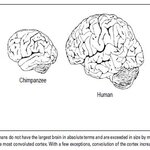
A Science Of Human Language - Part #3
In Part #1of this series, I suggested that a grammar heavily based in syntax was not sufficiently scientific as a general theory of how language functions.
Part #2 was an overview of how linguistic error-handling processes can add to the reliability and predictability of communication using human language.
This current part is a discussion of the evolution of the shared rules of communication, some of which, after writing was invented, came to be formalised as pedagogic 'rules of grammar'.
Rules Of Conformity
Before any two people can communicate…

